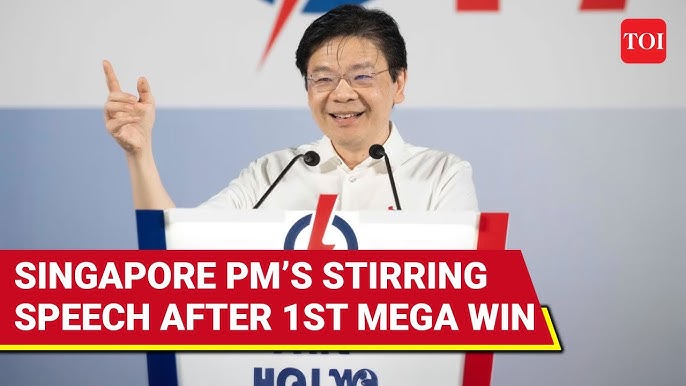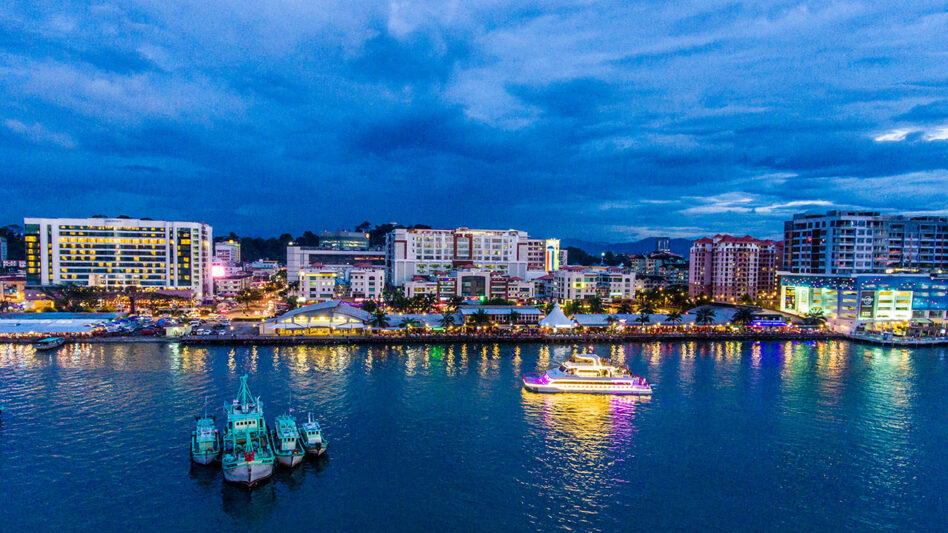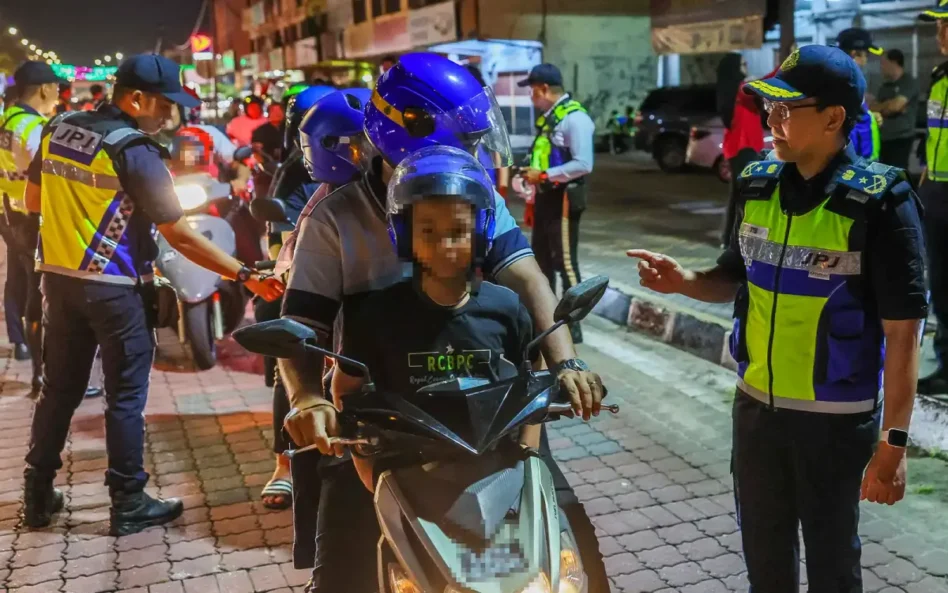ONCE upon a time, Malaysia and Singapore shared the same political stability with same parties seemingly destined to rule for infinity and beyond.
While Malaysia has experienced great electoral upheaval with the Pakatan Harapan (PH) coalition having displaced the almost immovable Barisan Nasional (BN), the status quo has remained steadfastly the same across the Causeway.
The People’s Action party (PAP) has yet to lose an election since contesting in its first polls in 1959.
Just exactly what is the secret behind the party’s continued success at the polls, wondered author Azizul Farhan (@AzizulFarhan2) in a recent tweet on X.
“Kenapa PAP Masih Kekal Berkuasa di Singapura?”
PRU Singapura baru tamat semalam. Kalau ada anugerah ‘parti paling konsisten menang pilihan raya’, People’s Action Party (PAP) mesti calon utama.
Sejak mula memerintah tahun 1959, PAP belum pernah kalah satu pun pilihan raya. pic.twitter.com/8Cn1W3KRqL
— Azizul Farhan (@AzizulFarhan2) May 4, 2025
Azizul quite rightly pointed out that if there was an award for most consistent political party, the PAP would be a leading candidate.
Outlining the May 3 election results, the PAP under stewardship of Prime Minister Lawrence Wong won big again, securing 87 out of 97 seats.
Unique features
How was this possible, queried the Diploma in History and Islamic Civilisation graduate, considering that Singaporeans are also facing numerous cost-of-living issues as other countries? These range from spiralling property prices to stagnating wages.
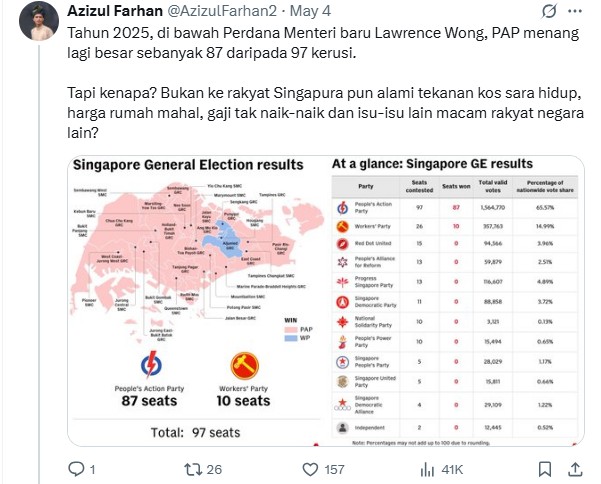
The poster surmises that the answer is complex, taking into account the political system, political strategies, electoral trust as well as global economic realities.
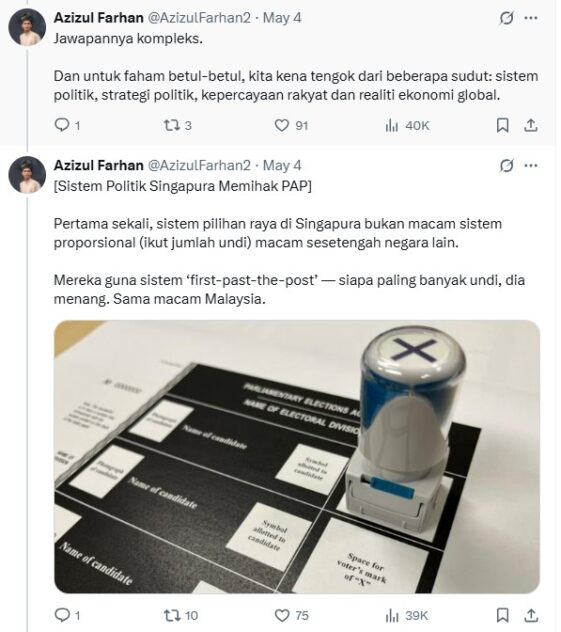
The first thing noted by the poster is that Singapore – like Malaysia – practices a first-past-the-post electoral system which favours the ruling party.
However, the unique aspect about Singapore elections were the existence of Group Representation Constituency (GRC) whereby four to six candidates would contest in each area. The condition being that at least one of the candidates must be from a minority group.
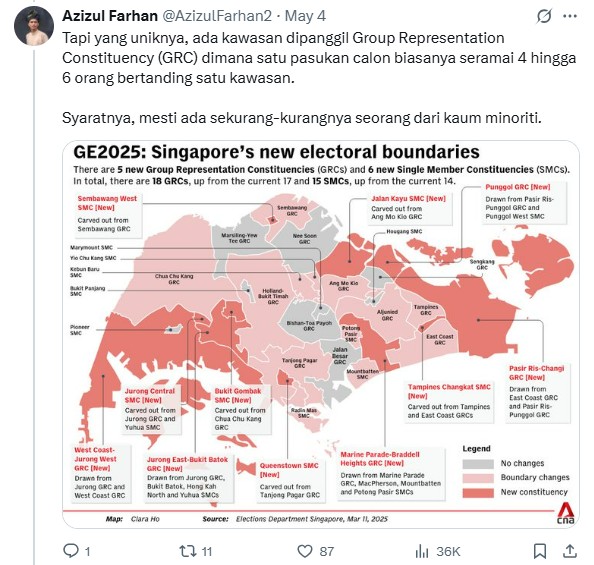
The problem with this GRC system is that opposition parties find it hard to find suitable or even enough candidates. The large electoral machinery of the PAP along with candidates from the public and corporate sectors tend to win easily in these GRC constituencies.
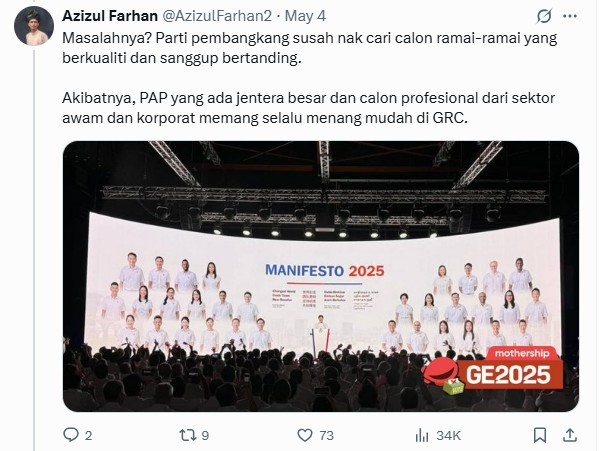
Highlighting the skewered results that favour the large parties such as PAP, the poster uses the 2020 elections as a yardstick. Although the PAP only won 61.2% of the popular vote, it managed to secure 89% of the parliamentary seats.
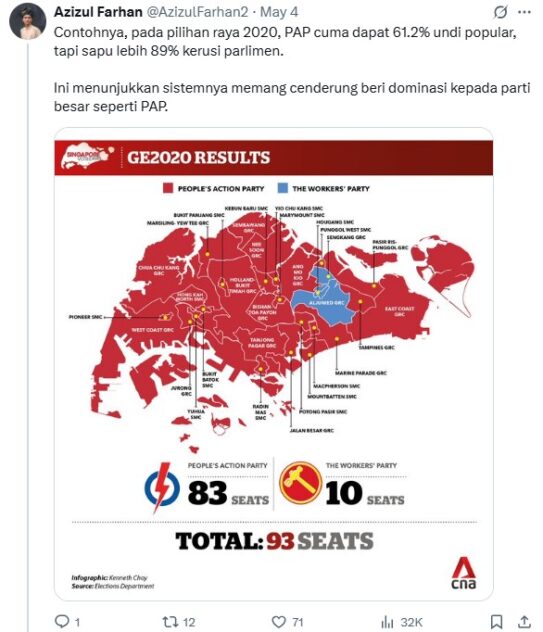
Turbulent economy
When the global economy is unstable, the poster revealed that Singaporean electorate tend to sway towards tried and trusted candidates that promised stability.
It was also pointed out that Wong who is the current PM and Finance Minister was a leading figure in the task force to tackle the COVID-19 health crisis.
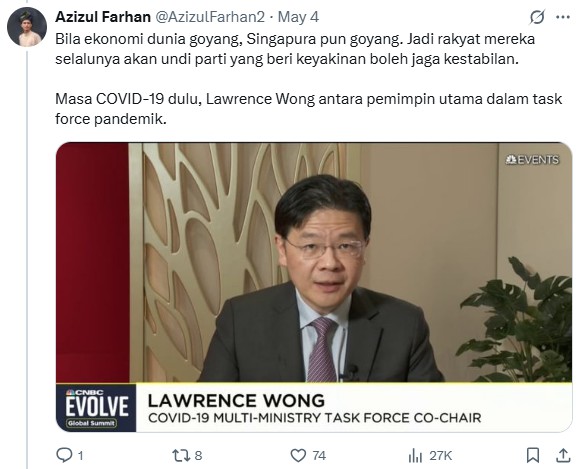
The 52-year-old Marsiling-Yew Tee GRC MP was often seen giving public updates and taking swift and decisive action, thus enabling Singapore to be among the nations to quickly emerge from the crisis.
Henceforth, the public were already familiar with Wong and confident in his ability to lead when he took over the PM’s position from Lee Hsien Loong on May 15, 2024.
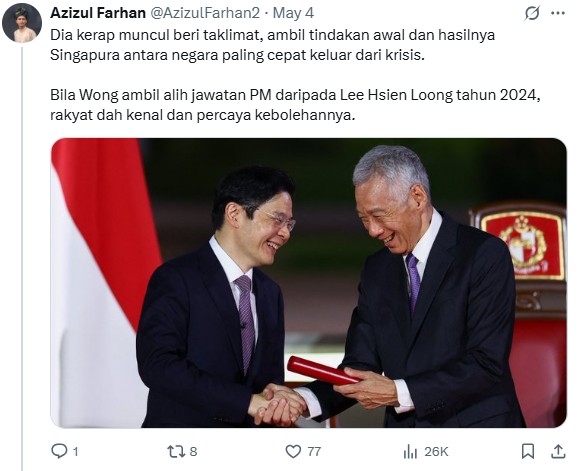
During this most recent election which took place amid a bitter trade war between the US and China, the PAP’s message was simple and effective – “do not change ships during a storm”.
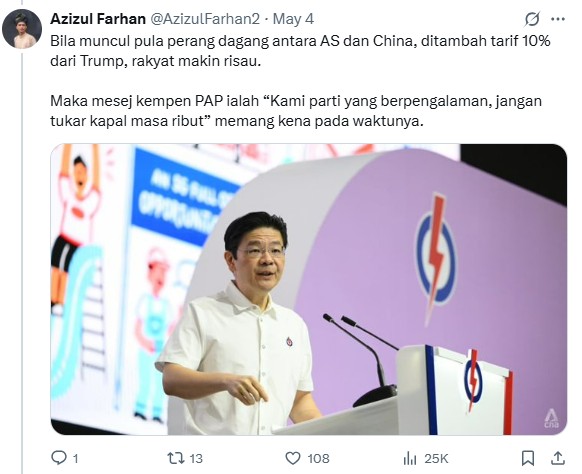
Hard to topple
Although the Worker’s Party under the stewardship of Pritam Singh was gaining popularity, the overall opposition remained weak.
Only the Worker’s Party managed to win 10 seats while the rest failed in their bids to make it into parliament. The opposition were further hampered by a controlled media and short campaign window.
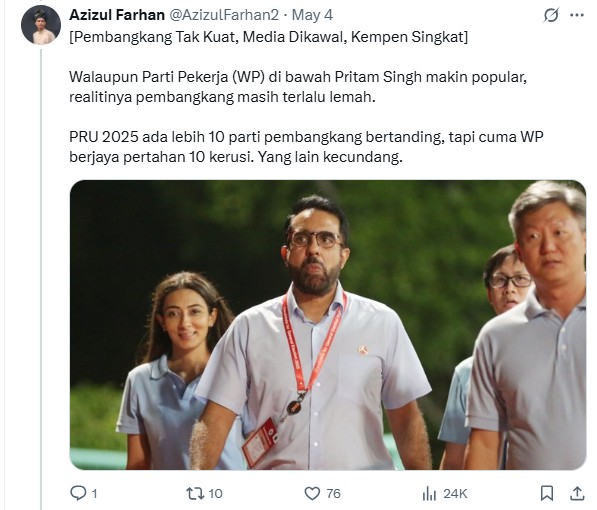
Gerrymandering was also cited as a means to weaken opposition strongholds. Such re-delineation exercise tends to making the electoral landscape even more unfair.
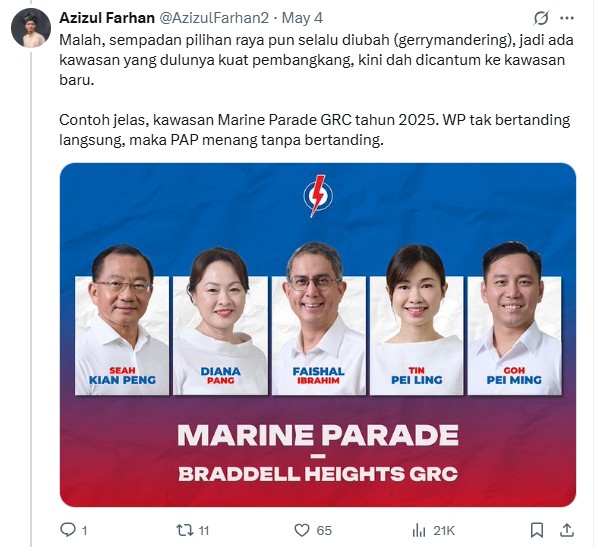
The PAP also realised it could not rely on its legacy alone. It therefore aggressively recruited young professionals from a variety of sectors to fill its ranks.
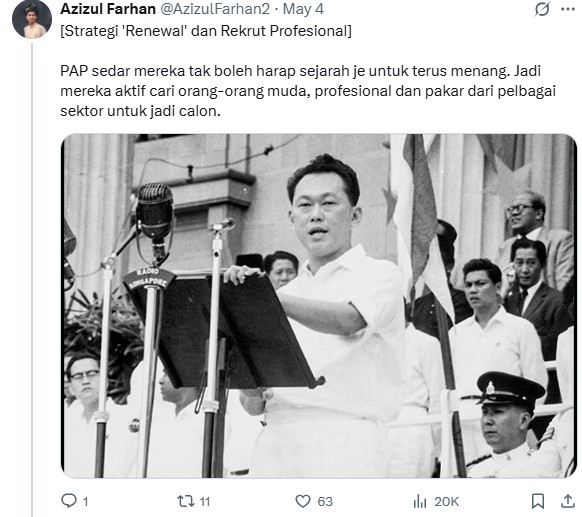
Interestingly, potential candidates were evaluated through unofficial interviews known as “tea sessions” with the PAP’s central committee making the final decision.
Wong himself is a prime example of the type of candidate the PAP seeks out – US educated and an economist with a strong civil service record.
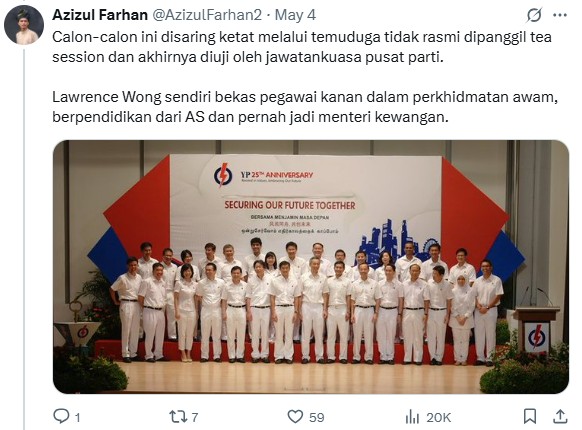
In the 2025 polls, Wong introduced 32 new faces, including legal experts, engineers and medical professionals. This ensured that the PAP remained fresh and vital in the eyes of the voting public.
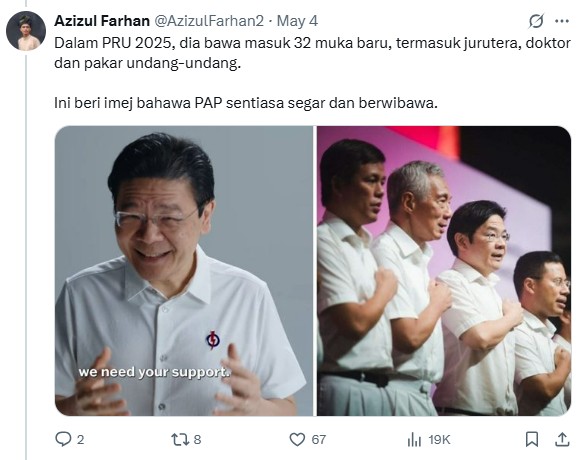
Despite various issues, the PAP retained public support. Why? Because it doesn’t believe that the opposition is ready to rule. Furthermore, the PAP’s swift and decisive action whenever problems raise its head bodes well for the party argued the poster.
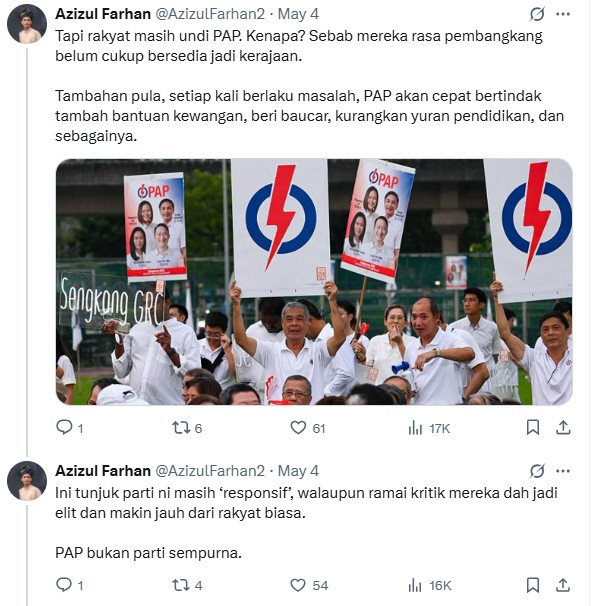
Interesting observations.
Will such a formula be adopted by the ruling Madani coalition or more broadly, in the divided Malaysian political landscape?
At a time of great uncertainty, the electorate may be yearning from stability. – May 8, 2025
Main image credit: Times of India/YouTube


